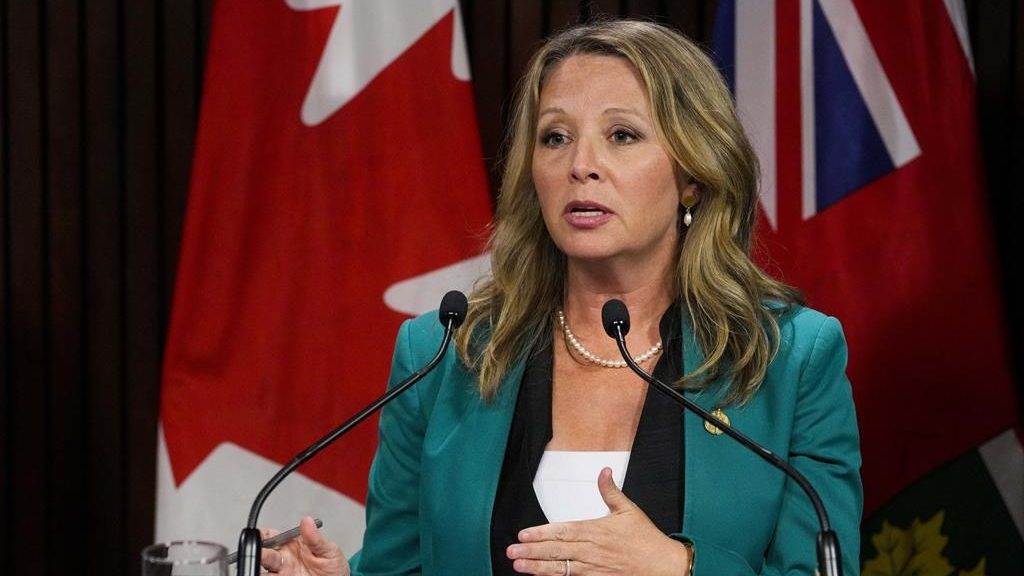TransCanada sees strong customer support for Energy East pipeline
Posted Jul 26, 2013 09:46:58 AM.
This article is more than 5 years old.
CALGARY – TransCanada Corp. said Friday it likely has enough support to build its Energy East project, which would connect western crude to eastern refineries using an existing pipeline.
The company (TSX:TRP) and its potential customers are putting the finishing touches on their contracts and there should be an announcement within the next two weeks, said Alex Pourbaix, the TransCanada executive in charge of oil pipelines.
“It’s really just working through terms and conditions, credit and so forth,” he said on a conference call to discuss the company’s second-quarter financial results, which met market expectations.
Energy East involves retooling part of TransCanada’s underused natural gas mainline, which runs from Alberta to the Quebec-Vermont border, to ship oil. New pipe would be laid to Saint John, N.B., home to Irving Oil’s massive refinery.
The pipeline could carry up to 850,000 barrels per day of crude, and potentially come into service by late 2017.
TransCanada CEO Russ Girling said Eastern Canada currently imports 700,000 barrels per day of crude from overseas and that Energy East would provide that market with a stable, less expensive supply.
Last month, TransCanada wrapped up a process known as an open-season, where potential customers places bids for space on the proposed pipeline.
“We continue to feel very positive about this initiative and we have received significant interest from both producers and refiners. We are confident Energy East will garner the binding, long-term contracts needed to move that project forward,” Girling said on the conference call.
“It would be the most efficient and the safest and economic way to transport crude oil to eastern Canadian refineries, creating jobs, long-term economic benefits across the country and displace foreign imported oil, making Canada more energy independent.”
Earlier Friday, TransCanada reported higher second-quarter profits that met analyst estimates, as it benefited from higher power prices and returns on its natural gas mainline.
The pipeline and energy giant said it earned $365 million, or 52 cents per share, up from $272 million, or 39 cents per share, during the same quarter a year earlier.
Comparable earnings, which company deems a better measure of its underlying performance as it strips out one-time items, were $357 million, or 51 cents per share — bang-on with the average analyst estimate, according to data compiled by Thomson Reuters.
A year earlier, comparable earnings were $300 million, or 43 cents per share
Revenue increased to $2.01 billion, up from $1.85 billion in the second quarter of 2012.
Meanwhile, TransCanada continues to await approval of its long-delayed Keystone XL pipeline in the U.S.
“We’re now closing in on 1,800 days since the review of Keystone XL began,” said Girling.
The company said it expected the project to be in service about two years after it receives the required Presidential Permit.
TransCanada has said the US$5.3-billion price tag for the project will increase depending on the timing of the approval. The company has spent $1.9 billion on the project so far.
Last year, the Obama administration rejected an earlier iteration of the Keystone XL project — which would have run all the way from Hardisty, Alta., to the Texas coast — because of environmental concerns in Nebraska.
The company responded by breaking up the project into two parts and going ahead with the southern leg between Oklahoma and the U.S. Gulf Coast, which does not require presidential approval because it doesn’t cross an international border.
Construction on the $2.3-billion Gulf Coast project is 85 per cent complete, TransCanada said, and oil should start filling the line in October or November.
TransCanada shares rose 19 cents to $46.60 in mid-afternoon trading on the Toronto Stock Exchange.










